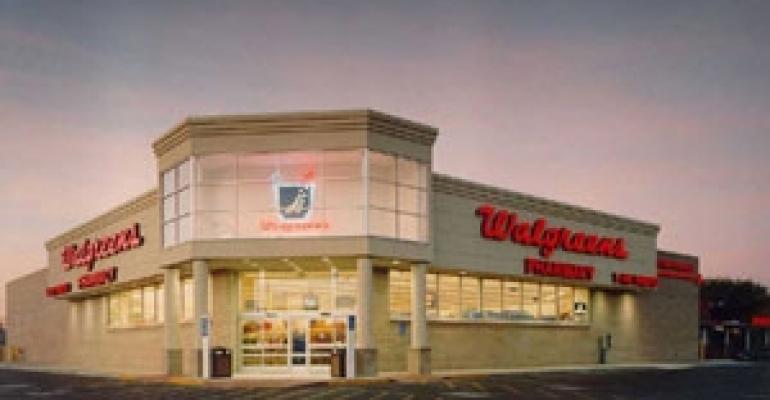In spite of predictions to the contrary, average cap rates for net leased retail properties compressed another 25 basis points from the first to the second quarter of 2012, according to a new report from The Boulder Group, a Northbrook, Ill.-based firm specializing in the single tenant net leased sector. Retail was the most favored asset class among net lease investors, while cap rates on office properties rose 25 basis points and on industrial properties six basis points, to above 8 percent.
Also, the bid-ask gap for retail assets has narrowed by six basis points, to 26 basis points in the second quarter.

Cap rates on Walgreens and CVS properties remained flat with the quarter prior at 6.45 percent and 6.7 percent respectively, but cap rates on restaurants fell 25 basis points to 7.25 percent. Cap rates on McDonald’s restaurants in particular fell 20 basis points to 4.8 percent, and cap rates on Dollar General stores fell 15 basis points, to 8.1 percent.
In addition, cap rates on properties leased to banks compressed 35 basis points, to 5.5 percent. Still, the cap rate compression on the most popular properties was below predictions. Back in May, researchers with Marcus & Millichap Real Estate Investment Services estimated that cap rates on dollar stores and drug stores would fall 30 basis points each from the first to the second quarter of 2012, while cap rates on quick service restaurants would fall 60 basis points.
However, few of those properties are trading in the core markets. Finding a McDonald’s or a Walgreens for sale in a primary market has “gotten tougher because there is not a lot of new things coming out of the ground and partly that’s what pushed down cap rates, as well as [the fact that] interest rates have gotten so low,” says Jonathan W. Hipp, president and CEO of Calkain Cos., a Reston, Va.-based brokerage and consulting firm specializing in the net lease sector.
To compensate for lack of product in prime locations, net lease investors have been more willing to accept risk in exchange for higher yields. Some are starting to buy assets leased to A-credit tenants in second-tier markets, Hipp notes. Others are investing in franchise restaurant locations instead of corporate-owned properties because they like the sector’s healthy growth.
Product pipeline
While Walgreens Corp. and CVS have maintained their 2012 expansion plans at the same level as in 2011, McDonald’s has upped its planned openings by 20 stores to 170, according to Retail Tenant Expansion report for single tenant net lease retailers from the Stan Johnson Co., a Tulsa, Okla.-based commercial real estate investment firm specializing in the net lease sector. Starbucks has increased its opening plans fourfold compared to last year, with 400 stores, and Tim Hortons will open more than three times the number of restaurants as in 2011, at 300.
In the dollar store sector, which is quickly coming into favor among net lease investors, Dollar General has maintained its store openings at 625, on par with last year. But Family Dollar has more than doubled its plans to 500 new stores from 200 in 2011. Dollar Tree cut its number of new store openings by 15 in 2012, to 320.
In addition, Costco has doubled its planned opening to 50 from 24, and Wal-Mart Stores Inc. will open 150 Walmart Express stores this year, on top of 135 supercenters.
When it comes to banks, however, Chase and KeyBank are maintaining their 2011 expansion plans, at 300 and 40 new branches respectively. PNC Bank will open 424 new locations this year, and Wells Fargo none.

